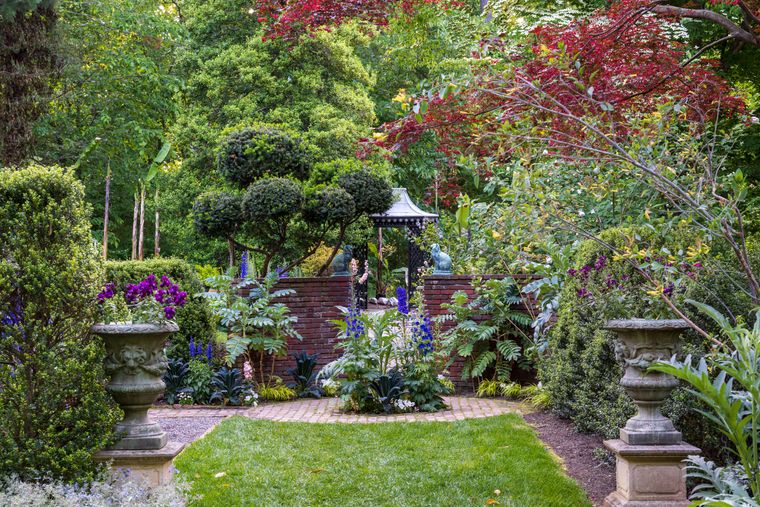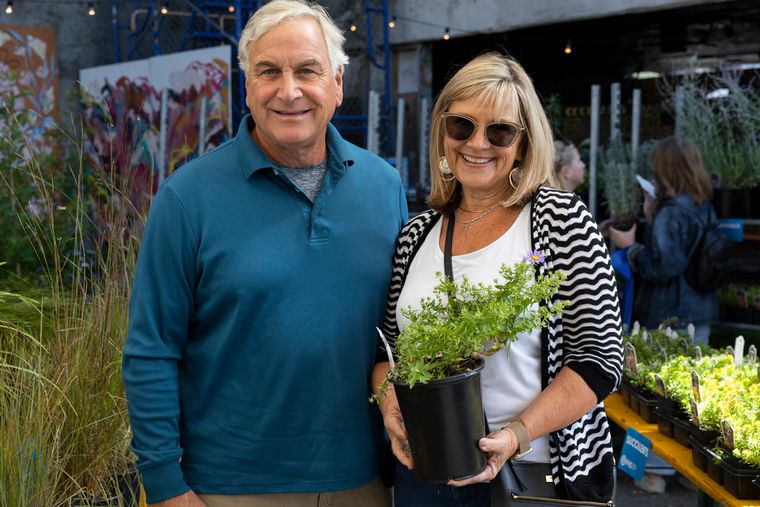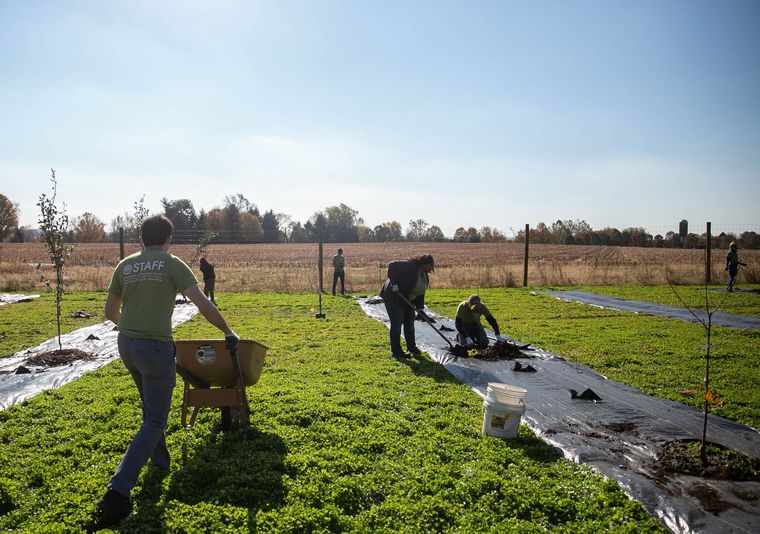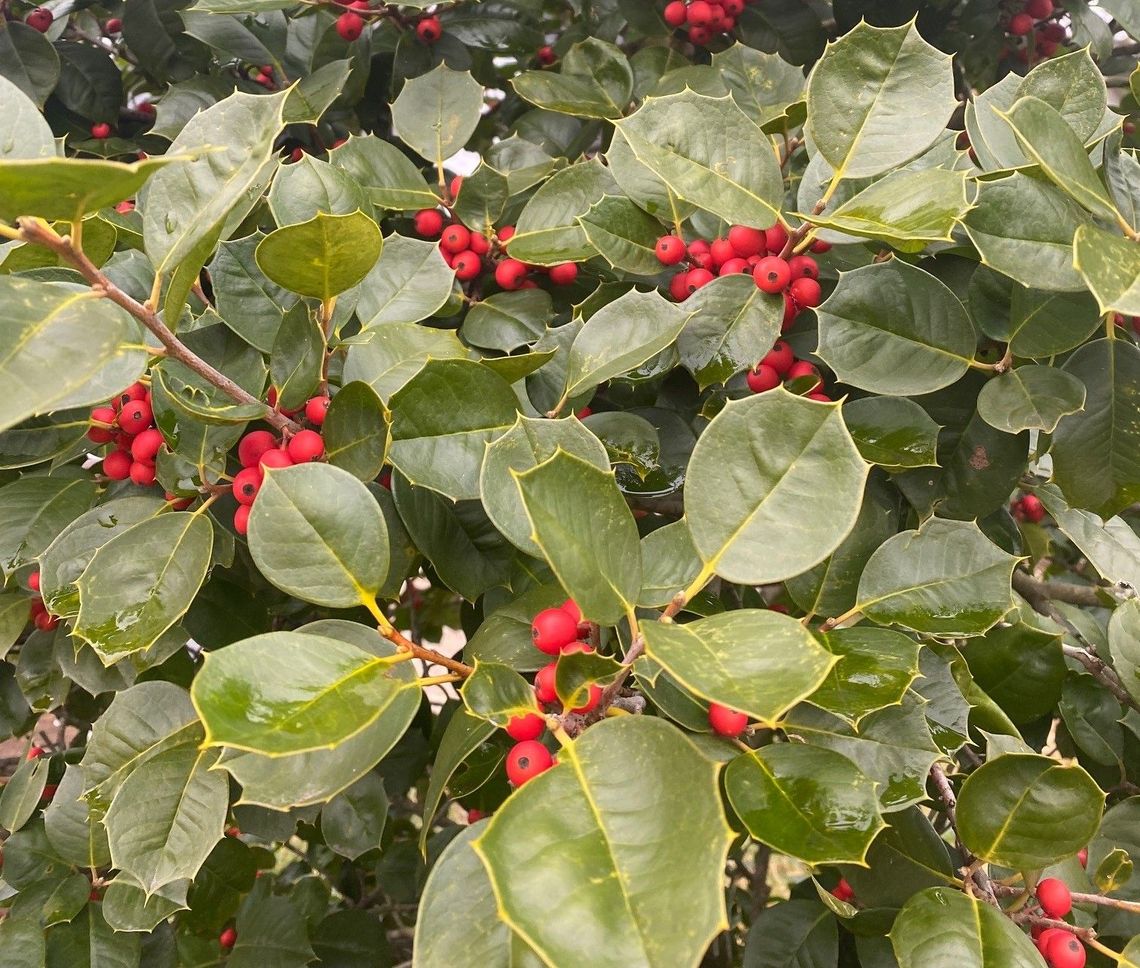



Native Evergreens: A Beautiful Addition to Your Garden
plant care

By Andrew Bunting, PHS VP of Horticulture
Evergreens are an essential part of any garden, providing not only structure and so-called “architecture” but also interest throughout fall, winter, and early spring. With the increasing popularity of native plants, a wide variety of ornamental broadleaved evergreens should become prime candidates for your garden.

The Magnolias
The sweetbay magnolia, Magnolia virginiana var. australis is native in the Coastal Plain from Massachusetts to Florida and the southeastern U. S. It is often found growing in swampy areas or along the edge of ponds and lakes. It is one of very few magnolias that is adaptable to moist, wet soils, or areas of the garden with poor drainage. The evergreen leaves are lance shaped. When the wind blows it exposes the beautiful silver undersides of the foliage. Starting in May, 4-inch-wide creamy white flowers appear sporadically throughout the canopy. There is never a great abundance of flowers, however, each flower emits an amazing lemony fragrance. It is a great tree to use at entrances to homes or in courtyards. This medium-sized tree can be grown with a single trunk or with multi stems. At maturity, it will reach 40 feet tall. There are many great cultivars including ‘Green Bay,' ‘Henry Hicks,' ‘Satellite,’ and ‘Santa Rosa.' The sweetbay magnolia is hardy in USDA zones 5-9.
One of the most impactful of the broadleaved evergreen trees is the Southern magnolia, Magnolia grandiflora. It is native from North Carolina south to central Florida, and west to eastern Texas. At maturity, this broadly pyramidal tree will reach 80 feet tall. It is hardy in zones 6-10. This magnolia has great versatility in the landscape. It can be grown as a single specimen, used effectively for hedging, and provides an excellent backdrop for flowering deciduous trees. There are also several more diminutive cultivars that are perfect for the small or urban garden.
In July, it is covered with large, pure white, fragrant flowers ranging up to 12 inches wide. These flowers continue blooming for a good part of the summer. The elliptic leaves are large and leathery and have an attractive shiny surface. Depending on the cultivar, the undersides can have a very attractive coppery brown “fuzz” called indumentum. ‘Alta’ is a very narrow selection, making it a great choice for a hedge. Baby Grand®, Teddy Bear® and ‘Kay Parris’ are all small selections that are perfect for the intimate, courtyard garden. Teddy Bear® also makes a great hedging plant for tight spaces. ‘Bracken’s Brown Beauty’ and ‘D. D. Blanchard’ are exceptional choices for specimen trees, and both are characterized by very attractive indumentum. It should be noted that Magnolia grandiflora casts very dry shade conditions at the base of the tree. Additionally, while it is evergreen, it is constantly dropping leaves, which can be a maintenance nuisance.

The Hollies
A great small to medium-sized shrub are the inkberries, Ilex glabra. This rounded shrub is multi-stemmed, reaching up to 12 feet tall with an equal spread. It is native to the East Coast and southeastern parts of the U. S. In its native habitat, it is often found at the edge of ponds, as it is tolerant of wet soil. It is called the inkberry because its tiny round fruits are black. The small fruits are a good food source for many species of songbirds. There are several selections that have a tighter habit, which make them good choices for foundation plants. ‘Shamrock’ reaches 6 feet tall and an equal spread. Gem Box® and Strongbox® have been hybridized and selected for their characteristics which are boxwood-like. Because of Boxwood Blight, many of the traditional boxwood cultivars have become extremely vulnerable, so these selections of inkberry provide a similar-looking alternative.
The American holly, Ilex opaca is an upright, pyramidal, evergreen tree that is hardy from zone 6-9. In the wild, it is often found growing as an understory tree where it is tolerant of a wide range of soils and relatively low light conditions. All hollies are dioecious which means there are both male and female plants. Therefore, to encourage good fruit production on the female plants, it is important to plant a male cultivar like ‘John Wister’ or ‘Jersey Night.’
‘Jersey Princess,’ ‘Longwood Gardens,’ and ‘Satyr Hill’ are all good fruiting forms. They all have upright pyramidal habits. ‘Maryland Dwarf’ has grown in popularity and was awarded the Pennsylvania Horticultural Society’s Gold Medal Plant Award for its exceptional attributes. At maturity, it only reaches 4 feet tall. It is a great shrub for the smaller garden and has exhibited good resistance to deer.
Ilex x attenuata ‘Foster #2’ and ‘Longwood Gold’ are a hybrid between Ilex opaca and another native species with narrow leaves, Ilex cassine. The resulting hybrid looks for all intents and purposes like a narrow-leaved American holly. Overall, the foliage is more refined, and it has a slightly more slender habit.

Florida Anise
In the last 20 years, Florida anise, Illicium floridanum has become an increasingly popular garden plant. When the leaves are crushed, it emits a distinct fragrance. Because of this quality, it is highly deer resistant in the garden. This multi-stemmed shrub has leathery, strap-like leaves. It thrives best in part shade to full shade. The maroon flowers are very attractive and spiker-like. ‘Halley’s Comet’ is a popular cultivar. ‘Swamp Hobbit’ is a relatively new, compact introduction.

Gordlinia
In the last 10 years, Dr. Tom Ranney at North Carolina State University has created a new bigeneric hybrid. He took the attributes of both Franklinia alatamaha and Gordonia lasianthus to create an evergreen version of the Franklin tree, x Gordlinia grandiflora. This is a single-trunked tree that has an abundance of white camellia-like flowers in late summer with golden stamens. It also exhibits more vigor and greater heat tolerance than either parent.
Beauty Year-Round!
These are just a handful of the many great native evergreens. In addition to great foliage, these specimens offer ornamental winter fruits, hardiness, and in many cases, deer resistance – making them well-rounded options in the garden. Many of these varieties are also hardy in multiple USDA zones, making this non-exhaustive list a great jumping off point when selecting great native evergreens for your garden.
Want to learn more? Sign up for PHS's monthly newsletter for more gardening tips and tricks.


